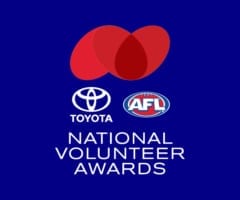By: Eastern Football League Chief Executive Officer, Phil Murton
Last Monday morning as I was driving into work, news broke of former North Melbourne champion Glenn Archer’s involvement in an incident at a junior football match the day before.
When the story first broke and the league hadn’t been identified, as it does, my heart skipped a beat hoping it wasn’t us, but also a level of disappointment that an incident at junior footy had taken place as it doesn’t cast the whole industry in the best light.
As I have said before, we aren’t immune and each year, we deal with a number of not dissimilar incidents across both junior and senior footy.
Passion is both our game’s biggest strength and its biggest weakness.
It’s why we have wonderful crowds turn up for finals and why people volunteer their time to help run our great game.
But from time to time that passion comes out in the wrong way and it’s up to us all to ensure we are part of ensuring appropriate standards of behaviour are being set.
There are two groups of people who in recent times we have had to remind of expectations of behaviour. They are supporters and match day officials, particularly adult officials in junior footy.
Ours is a physical game and the reality is from time to time there are going to be incidents where players scuffle.
When an incident arises, as an adult sometimes the first thought is to get involved to help stop it, and even with good intentions, this often has bad consequences.
Where an opposition official makes any contact with a player from the other team, it always leads to significant issues. It just can’t happen and is what lead to the Archer incident escalating by the sound of things.
Murphy’s law dictates that when these incidents happen, they almost always happen near a fence or at the end of a quarter as the siren goes.
This is when spectators can sometimes be involved. Again, this only escalates the situation, so it’s the spectator who must not enter the field under any circumstance or get involved in any way.
Melees are a blight on our game.
In my 10 years as an administrator, they remain the hardest kind of incident to manage. If two people stand toe-to-toe and are having a go at each other, you can stand back and watch who does what and report it.
Where large of numbers of players are suddenly involved, it’s almost impossible to tell who is doing what and if a serious injury arises, proving who did what is very difficult.
It’s why we will continue to take a zero-tolerance approach to melees and fine clubs for being involved.
As a parent of three boys myself, I understand the emotion when issues arise involving your own kids.
But it’s up to us all to have faith in the disciplinary processes in place to ensure people who do the wrong thing are held to account.
Archer’s apology was spot on. As a spectator, entering the ground or becoming involved in an incident is never acceptable.
Under no circumstances should spectators or parents intervene in any on-field matters with players or officials, at any level.
Hopefully as a community we start to change. There are some terrific examples and resources available. The government’s “Play by the Rules” initiative is a good one while ABC journalist Paul Kennedy’s “Fun Coach Movement” is another example.
Good luck to all teams this week. At the footy this week, whether a player, official or spectator, lead by positive example.









































